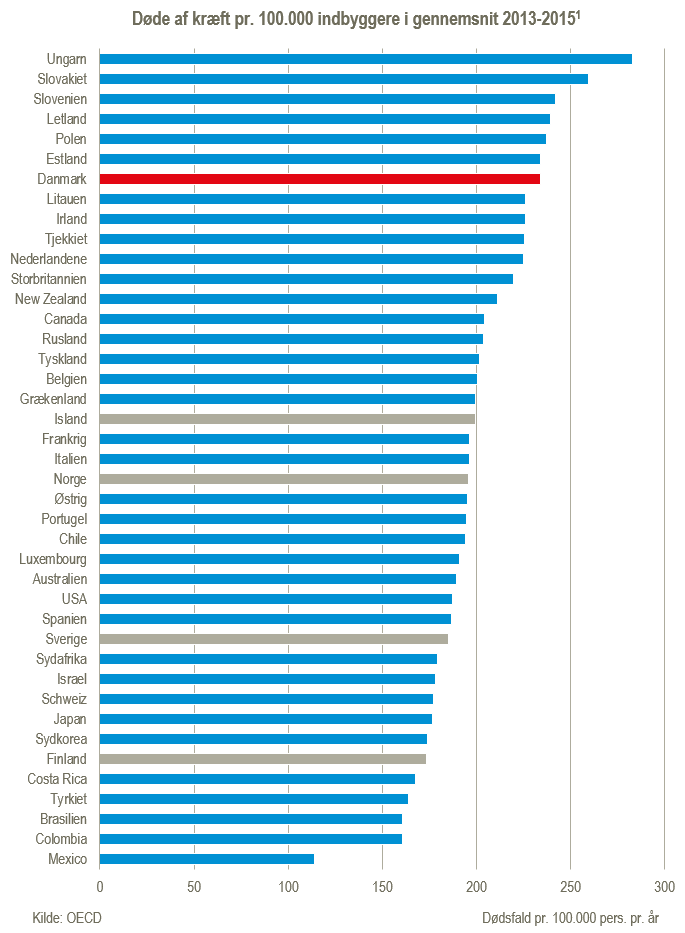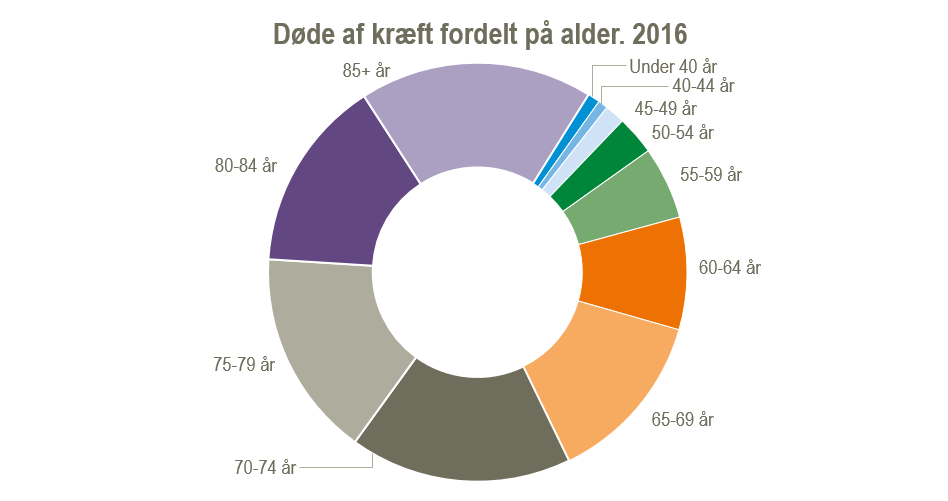According to new figures from the national statistics keeper Danmarks Statistik, Danes succumb to cancer at a higher rate than their Nordic brethren.
The figures (read more here in Danish) showed that 230 per 100,000 Danes died of cancer in 2015, a considerably higher rate than in Norway (193/100,000), Sweden (185) and Finland (173).
Denmark also ranked as having among the highest rates in the OECD, behind leaders Hungary, Slovakia, Slovenia, Latvia, Poland and Estonia.
READ MORE: Danish cancer survival rates see significant boost
Mexico exceptional
Lung cancer was the biggest culprit, accounting for 3,717 out of the 15,800 cancer deaths in 2016. Bowel cancer came second with 1,429 deaths, followed by prostate cancer (1,225) and breast cancer (1,127). By far the most who died were over 40 years of age, while about two-thirds were over 70.
The good news is that the rate has dwindled somewhat over the past two decades – in 1995 the rate was at 300 deaths per 100,000 citizens – and an international report from earlier this year found that the Danish health services were improving when it comes to diagnosing and treating cancer.
Mexico had the lowest cancer mortality rate in the OECD with 114 deaths per 100,000 people, preceded by Colombia, Brazil, Turkey and Costa Rica. The US, Australia and Japan were at the low end of the OECD ranking, while the UK, Ireland and Canada were in the upper half (see below).
















